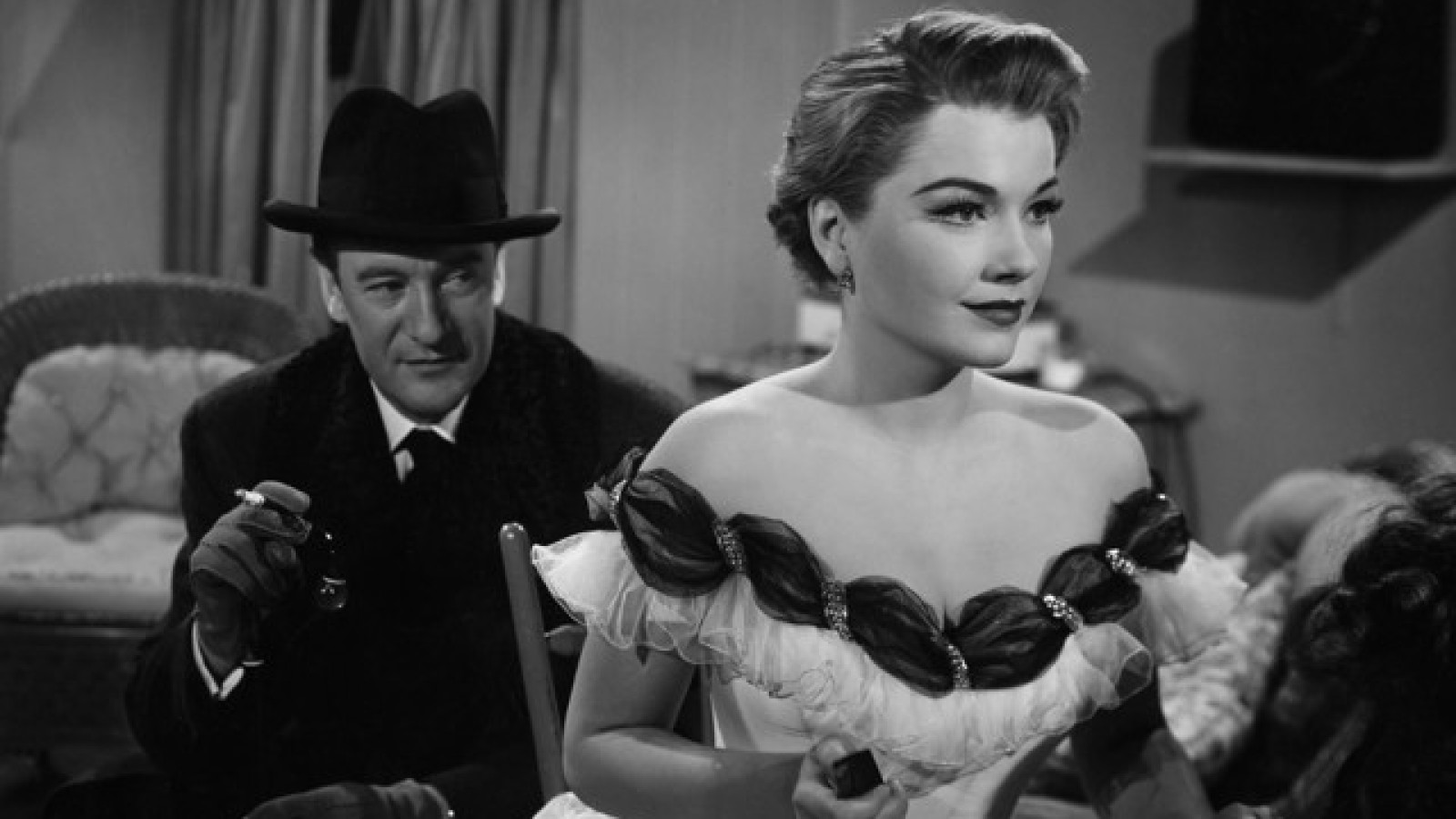Gender and Christian myth are my go to lenses when interpreting film, and All About Eve is at the centre of that Venn diagram. It's not a feminist film at all, but then there's the scene where Margot (a feisty aging actress) admits that being a woman is just another performance. She can try to carve out a career for herself, but at the end of the day this is just a distraction, a way to spend the time until you find a suitable husband. Marriage is the only route to happiness available for women – any other kind of ambition is monstrous. Margot is valourised for accepting her fate, regardless of how independent-minded she may appear at first glance.
Because then there's Eve of course, who at first glance appears meek and is revealed to be anything but. The name cannot be an accident – she is an alluring object, a potential theatrical star. But she is also a tempter, and a serpent. It's interesting that despite her best efforts, the men in the film who are in relationships remain faithful to their partners. Eve's victims are women, not men. The film never allows her to have the upper hand.
Eve's intrigues spring from the same motive as Satan in Milton's Paradise Lost – observing what others have (love, grace, success) leads to resentment and ambition. It will end up in a desire to dominate that is far less benign than Margot's melodramatic inflexibility, which the film frames as feminine caprice and weakness. The filmmakers aren't brave enough to show Eve unbound. Instead, they transfer that end state onto a man: Addison DeWitt, a critic (of course).
DeWitt is a villain greater than Eve. He is omniscient – seeing through all Eve's secrets and using them to make her his slave. "You belong to me", he says, and slaps her when she doesn't comply. DeWitt also provides the initial voiceover at the start of the film. It starts off being a voice of God, before DeWitt introduces himself, and the film's one radical act is to associate his character's cold inhumanity with the deity of the Christian faith. DeWitt is a jealous God insisting on complete obedience from his servants.
I admit I missed the suggestion that Eve and DeWitt are gay, which adds a homophobic tenor to the film's defense of marriage. All About Eve has a gay following, but that is due to Bette Davis in the role of Margot – who has the largest presence, and the sharpest wit, in the film, and therefore displays a certain freedom before being forced to retire from the spotlight. The film ends with Eve's success, and the notion that the ambition that powered her ascent is something universal. And although there is something morbidly fascinating about Eve's duplicity, I wonder whether the film would be a classic without Bette Davis sparkling turn as Margot, who makes the character's retreat into domesticity into a tragedy.

No comments:
Post a Comment